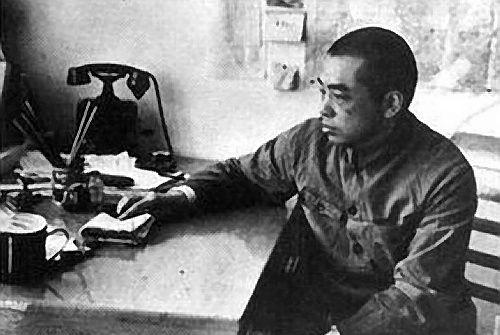In 1965, Mr. Peng had been living idly in the Wu Family Garden for six years, and the haze of his trip to Lushan always hung over him. Because of a letter that year, the marshal fell into a situation of no return, the work was not satisfactory, and the family did not understand, which made Mr. Peng feel helpless.
In the six years since he moved out of the headquarters office, Mr. Peng, who has worked for most of his life, has not been able to idle, and he, a marshal from a poor people, has picked up agricultural tools, grown vegetables and fish in his own yard, and lived a civilian life. But on the other hand, the chairman still cares about these once meritorious generals, intends to arrange work for them, and continue to shine in other positions.

As early as 1960, Deng Hua, who had been implicated, made a comeback, of course, he did not continue to serve in the army, but went down to the local government as vice governor. For a founding general, this level was obviously lowered a lot, but it still belonged to senior cadres, and Deng Hua also went to his post happily.
In 1965, Huang Kecheng also implemented the work and went to Shanxi to serve as vice governor. Huang Kecheng is even higher than Deng Hua's military rank, but he is very realistic, believing that no matter how high or low the position is, as long as he can do something for the people. That is, in the same year, the chairman also found a position for Mr. Peng, that is, to go to the third line as a deputy commander-in-chief.
This position is not arranged haphazardly, but has another meaning. At that time, the international situation was very grim, and the central authorities decided to build a major third line, develop the great southwest, and strengthen the strategic depth. This project is very expensive and has a very important position. The chairman let Mr. Peng take on such a heavy responsibility, on the one hand, he trusted his ability, and on the other hand, it was also conducive to his comeback. The chairman even said to Mr. Peng, "It is appropriate for you to go to the Great Southwest, and in the future you can also bring some soldiers to fight in order to restore your reputation." ”
However, Mr. Peng is not very satisfied with this arrangement, and he has many concerns, mainly two points. The first is that they have not engaged in industry, belong to the layman, and are afraid of failing to live up to the expectations of the organization; the second is that their own problems have not been clarified, they have no authority in issuing orders, and their work is not easy to carry out.
But Mr. Peng did not want to come out to work, he also said that he was willing to go to agriculture to conduct research. Mr. Peng has a very stubborn personality, and no matter how others persuade him, he never lets up. At the end, the Chairman himself spoke to the Marshal.
They hadn't seen each other for a long time since Lushan parted. As for Mr. Peng, the chairman was very supportive of him coming out to work, and patiently persuaded, and even said, "Peng Dehuai went to the great southwest, this is the party's policy, who does not agree, ask him to come and talk to me." When the marshal heard this, he did not insist on his ideas anymore, and he was very happy when he returned home, and told his niece that he was going to work in the Great Southwest.
In November 1965, when the wind was gusting in Beijing, Mr. Peng said goodbye to his friends and relatives in Beijing and hurriedly boarded the train to Chengdu. So what was the fate of the marshal after that? Let's move on.
After Mr. Peng came to the third line, his status was not high, and there were li jingquan and Cheng Zihua in front of him. But in terms of seniority and military achievements, these two are inferior to Mr. Peng. The marshal was very calm, he put the overall situation first, and worked conscientiously. At that time, Mr. Peng was over sixty years old, but he still often went down to the front line to chat with the workers face-to-face, inspect and understand the progress of the project.
In addition, Mr. Peng also visited many old revolutionary sites and recalled the glorious years of the Long March. When he arrived at the Anshunchang Ferry Crossing of the Dadu River, the marshal told the story of the Long March road to the staff around him, and most of the content he talked about was the fierceness of the battle, the hardships and obstacles of the Red Army along the way, and did not mention his brilliant achievements at all.
Unfortunately, Mr. Peng only stayed in the southwest for more than a year, and then he was taken back to Beijing. After this, the marshal's life was once again in trouble and began a very difficult period.